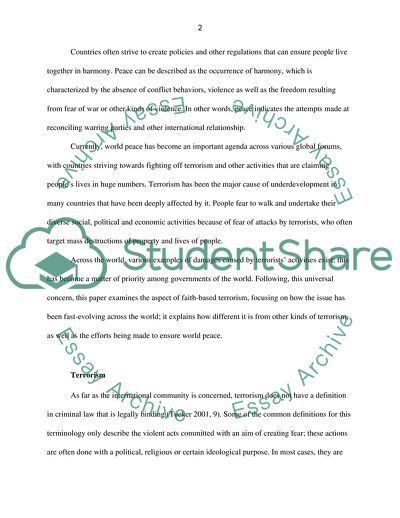Cite this document
(Faith Based-Terrorism Coursework Example | Topics and Well Written Essays - 2750 words, n.d.)
Faith Based-Terrorism Coursework Example | Topics and Well Written Essays - 2750 words. https://studentshare.org/social-science/1853094-how-novel-and-how-dangerous-is-the-so-called-faith-based-terrorism-compared-to-other-types-of-terrorism
Faith Based-Terrorism Coursework Example | Topics and Well Written Essays - 2750 words. https://studentshare.org/social-science/1853094-how-novel-and-how-dangerous-is-the-so-called-faith-based-terrorism-compared-to-other-types-of-terrorism
(Faith Based-Terrorism Coursework Example | Topics and Well Written Essays - 2750 Words)
Faith Based-Terrorism Coursework Example | Topics and Well Written Essays - 2750 Words. https://studentshare.org/social-science/1853094-how-novel-and-how-dangerous-is-the-so-called-faith-based-terrorism-compared-to-other-types-of-terrorism.
Faith Based-Terrorism Coursework Example | Topics and Well Written Essays - 2750 Words. https://studentshare.org/social-science/1853094-how-novel-and-how-dangerous-is-the-so-called-faith-based-terrorism-compared-to-other-types-of-terrorism.
“Faith Based-Terrorism Coursework Example | Topics and Well Written Essays - 2750 Words”. https://studentshare.org/social-science/1853094-how-novel-and-how-dangerous-is-the-so-called-faith-based-terrorism-compared-to-other-types-of-terrorism.


